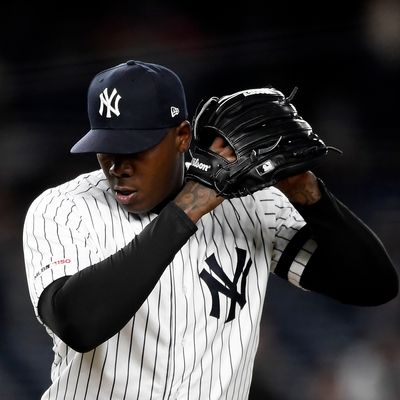
When Barack Obama visited Cuba in 2016, he went to a baseball game. It was the first time a sitting U.S. president had been to the island since Calvin Coolidge in 1928, and Obama celebrated the historic moment with Raúl Castro at an exhibition game between the Tampa Bay Rays and the Cuban national team (yes, they did the wave together). For Obama, baseball was a way of restoring diplomatic ties with a country that no longer seemed to be the enemy.
For Cuban nationals, playing in the majors became a difficult and dangerous proposition when Fidel Castro’s communist revolution toppled the U.S.-backed government in 1959. Castro forbid Cubans from playing abroad and banned professional sports in his own country — athletes were not even allowed to compete for earnings in Cuba until 2013. As the Cold War intensified, the U.S. imposed heavy restrictions on business dealings with Cuba through an embargo that is the longest in modern history. To play baseball in the States, Cuban players had to defect, braving black-market smugglers, flimsy fishing boats, or worse — to get to American shores. And defect they did — Cuban baseball players helped to build the modern MLB.
The Obama administration made attempts to lift the embargo, but failed to convince a Republican-controlled Congress and was only able to ease some of the trade and travel restrictions. In Obama’s last year in office, the Treasury Department granted Major League Baseball a license to negotiate a deal with the Cuban Baseball Federation. The MLB hoped to make it safer and easier for Cuban players to join the league. The two parties reached an agreement in December, and the federation recently released the first-ever list of 34 players eligible to sign without defecting.
But last Monday, the Trump administration canceled the MLB’s deal. Trump has taken a harsher stance against Cuba and is less willing to make exceptions — even if it means preventing human trafficking. Technically, the Cuban government operates the baseball federation, and the agreement stipulated that the federation would receive between 15 and 25 percent of a player’s signing bonus (similar to arrangements with Japan and South Korea). In a statement to the MLB, the administration rejected the deal on the basis that “a payment to the Cuban Baseball Federation is a payment to the Cuban government,” and is in violation of the embargo.
Sports reflect our changing political realities. According to Samuel Regalado, author of the book Viva Baseball!, rocky relations between the U.S. and Cuba continue to impact baseball players.
“The Trump administration is using these players as pawns to demonstrate their toughness against Cuba and reverse Obama policies,” Regalado said. “The trouble is, it forces the players to defect and go through human trafficking.”
Viva Baseball! charts the history of Latin American baseball players, revealing Cuba’s instrumental role in the league’s ethnic and racial integration. In the first half of the 20th century, Cuba led all other Latin American nations with 43 major leaguers (Mexico was next with just five players). In 1947, the New York Cubans won the Negro League championship, featuring soon-to-be major leaguers like Minnie Minoso. That same year, Jackie Robinson attended the Dodgers’ spring training in Havana, and would officially break the color barrier a few months later.
While the MLB still has difficulty attracting black athletes, the Latino population has taken off, thanks to Cuba’s early influence. This year, 251 out of the 882 players on opening-day rosters were born outside the U.S. — and 220 of those came from Latin America. The Dominican Republic led the way with 102 players. Cuba, however, only had 17 players, a result of the political realities that make for a dangerous journey to the majors.
Reds outfielder Yasiel Puig tried defecting 13 times and was kidnapped by a Mexican drug cartel before successfully making it to the MLB. White Sox first baseman Jose Abreu has said he still gets harrassed by “smugglers and unscrupulous agencies.” Yankees closer Aroldis Chapman escaped during a tournament in the Netherlands and never returned to Cuba, leaving his parents, sisters, girlfriend, and infant daughter behind.
“Unfortunately, [Cuban players] might find themselves making difficult decisions on how to get here,” Chapman said.
In a statement, the MLB stood by the goal of the agreement, “which is to end the human trafficking of baseball players from Cuba.” But for now, there is little the league can do. The Trump administration has prioritized political posturing over the safety of Cubans seeking opportunity, and it doesn’t come as a surprise. This administration’s hostility — especially for those coming from Latin American countries — has now extended to the baseball diamond. As always, it will be the least privileged that are the most affected.
“Most Americans view baseball through the prism of big ballparks and equal opportunity,” Regalado said. “We don’t realize that for every Aroldis Chapman, there’s dozens of Cubans who never made it.”





























